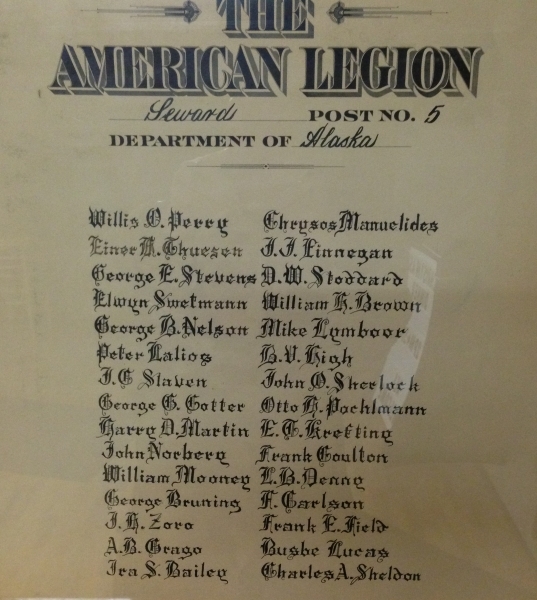
The post started to become formalized with positions being assigned. Elwin Swetmann became temporary chairman and D.W. Stoddard, temporary secretary and treasurer. The group selected a committee to draw up bylaws and a constitution. Those eligible for membership could be from any branch of the service, but had to "under arms at the front, in camps or on duty elsewhere from April 6th, 1917 to November 11, 1918, or those of allied nations." The first American Legions were formed specifically for veterans of the Great War. The few union Civil War soldiers had their own Grand Army of the Republic (GAR), and Confederate veterans had their groups, as did the more recent Spanish-American War soldiers. From today's perspective, it might seem these new American Legion groups were being too selective. But remember in 1919 here was yet to be World War II, Korean War, Vietnam War, Gulf War, and the today's Iraq and Afghanistan conflicts. The mission of the Seward Isaac Evans Post was to "uphold and defend the constitution of the United States of America; to maintain law and order; to foster and perpetuate a one hundred-percent Americanism; to preserve the memories and incidents of the association in the Great War; to include a sense of individual obligation to the community, state and nation; to combat the autocracy of both the classes and the masses; to promote peace and good will; to commit to posterity the principles of Justice, Freedom and Democracy; to consecrate and sanctify comradeship by devotion to mutual helpfulness." The local post would be "absolutely non-partisan" when it came to politics and would promote no candidacies. The twenty-three original members of the local post: Willis O. Perry, William L. Mooney, B.V. High, Einer H. Thuesen, George L. Benning, John O. Sherlock, George E. Stevens, J.T.Coulton, Otto H. Poehlmann, Elwin Swetmann, Arthur B. Gray, E.T. Krefting, George B. Nelson, Ira S. Bailey, Frank Coulton, Peter Lahis, Chrysos Mamelides, J.B. Denny, J.C. Slaven J.J. Finnegan, Granty Carlson, George Cotter, and D.W. Stoddard.
